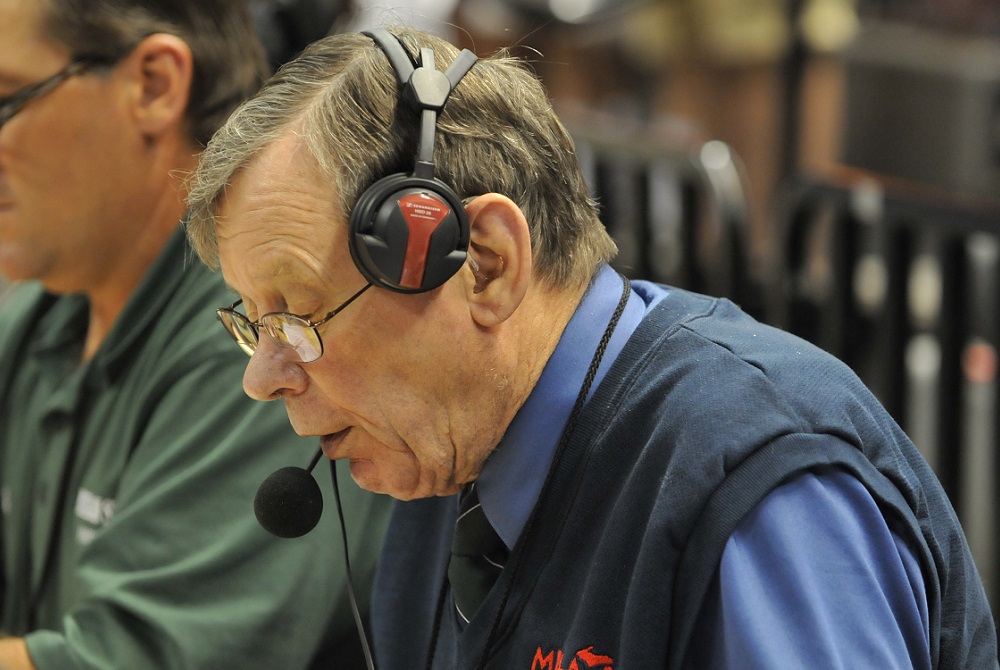
Thank Roosevelt for Football Weekends
December 20, 2013
By Rob Kaminski
MHSAA benchmarks editor
The next time you find yourself immersed in a tense crosstown football rivalry on a Friday night followed by a Saturday pilgrimage to the nearest college campus and a Sunday afternoon with a remote and your favorite snacks and beverages, take a moment to consider what the weekend would be like if it weren’t for Teddy Roosevelt.
The man who became our 26th President shortly after the turn of the 20th Century following the assassination of William McKinley in 1901 was a football fan like you. Maybe more so.
Today’s game of football has reached a critical crossroads. Player size and speed have increased across the board. Savage use of equipment as weapons rather than protective gear has been glorified on television networks and social media. Leaders of the game at all levels have recognized the need for change, employing new rules and widespread educational efforts to aid in preserving the sport.
History, as they say, is repeating itself.
In an ironic twist, it was Roosevelt who saved the then-brutally violent game of football from itself more than 100 years ago. Yes, the same “Rough and Ready Teddy” who led the charge up San Juan Hill during the Spanish-American War and often sparred in the boxing ring while in office from 1901-09 opined that football was becoming so gruesome that he delivered an ultimatum: clean up the game or it would be outlawed.
The Chicago Tribune reported that in 1904 alone, there were 18 football deaths and 159 serious injuries, mostly among prep school players. Football deaths suffered by younger players were reported on a nearly weekly basis, as outraged citizens called on colleges and high schools to banish football outright.
In stepped Roosevelt, who called head coaches and representatives from Harvard, Yale and Princeton – college powers at the time – to the White House in 1905 urging them to eliminate excessive violence and set an example of fair play for the rest of the country. When the casualties actually rose by one during the ensuing season, Roosevelt reacted with greater resolve and convened leading football authorities for the purpose of authoring drastic rules changes. What emerged was an intercollegiate conference which was the predecessor of the NCAA.
Among the most effective changes for the 1906 season were the legalization of the forward pass, the elimination of mass formations, and the creation of a neutral zone. Football fatalities fell to 11 in each of the next two seasons, and severe injuries fell drastically.
Thanks to the introduction of protective equipment and ever-evolving rules changes, football during the 100-plus years to follow has become an exponentially safer game. Yet, the game’s leaders always will need to adjust and react to scrutiny that comes with the territory.
So, as the game once again undergoes rules modifications in the name of safety, give a tip of the cap to President Roosevelt while you enjoy college bowl season and the NFL playoffs and begin to think ahead to the first high school practice of 2014.

In Memoriam: Erik O. Furseth (1930-2022)
By
Geoff Kimmerly
MHSAA.com senior editor
March 1, 2022
For 50 years, Erik O. Furseth’s voice chimed throughout MHSAA and Michigan State University athletic events. That voice surely will continue to live in the memories of the many who cherished listening to him, as he died Monday evening at the age of 91.
Furseth began as the public-address voice of MHSAA Boys Basketball Finals in 1968 and continued well into his 80s as those games moved from Jenison Field House to other locations across the Lower Peninsula and eventually settled into Breslin Center. He also was the longtime MHSAA football championship game voice going back to their days at the Pontiac Silverdome and provided the narration for MHSAA Baseball Finals for a decade. He announced his last MHSAA event in 2018.
An MSU basketball player during the early 1950s, the Cleveland Heights, Ohio, native played in the Spartans’ first Big Ten game in 1951. A forestry student initially, Furseth switched to communications. He later became a legendary rock-n-roll radio DJ in Lansing, and for a decade hosted Saturday night dances at the Lansing Civic Center that drew 1,000 teenagers a night – and a surprise performance by a young Stevie Wonder.
Furseth’s voice continued to be known particularly by Spartan fans as the homecourt voice for MSU basketball from 1968-2002 and MSU football from 1971-98. For more, see this feature from the MHSAA Basketball Finals programs written in 2013.
Furseth moved from East Lansing to Traverse City about 25 years ago. Click for his obituary and funeral arrangements.
Longtime MHSAA Public Address announcer Erik O. Forseth died Monday evening at the age of 91. Nearly every MHSAA Boys Basketball Final for 50 years started the same way – with Erik introducing both teams. Our thoughts are with his family and friends. pic.twitter.com/CA5iRKt39t
— MHSAA (@MHSAA) March 1, 2022

